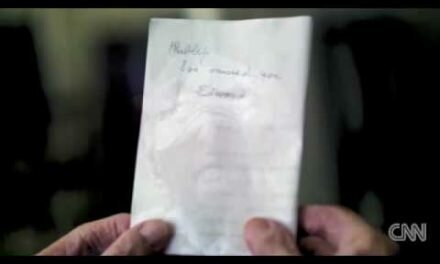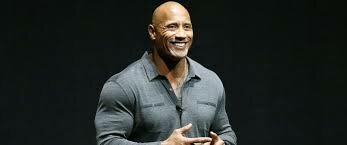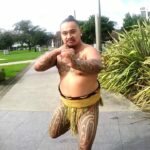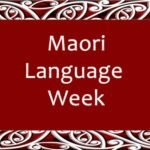If You’re From Waimana, Why Are You White?
At this stage of early adulthood, we all want to figure out who we are and what we truly care about doing. No matter how far I search, there’s something I always keep coming back to. It is the way in which I experience the world through my body—the body of a young Māori woman. Oppression works in ways that intersect according to the direct existence and experience of an individual. I want to dedicate this space to the experience of myself and so many other Māori in today’s world, whose identities are inevitably influenced by the power of whiteness and the systems of oppression that result from the echoes of colonization that still haunt Aotearoa.
A high school sleepover with your gurlz is one of those occasions that is always likely to get way too philosophical at 2am in the morning. I still remember one such sleepover, several years ago now, when one of my friends turned to me and said quite blatantly: “If I saw a Māori, I would cross to the other side of the road. What do you think about that?” Disclaimer: I am a Māori woman who very proudly hails from Ngāi Tūhoe, who grew up deep within my iwi territory—so ask me again what I think about that.
This is the #whitemaorilyf, where I am someone who is perceived as being a milky version of my own brown culture. I am the daughter of a Māori father and a Pākehā mother, but I don’t really look like I am the child of either of them. Many of us have to learn how to walk in two worlds. I have often felt alienated on both sides, because of a perceived need to pick and choose just one world to belong to. Integrated spaces where I feel I can express the full range of my bi-culturalism are difficult to come by.
Viewed by most as a ‘white Māori’, I have so often found my cultural grounding erased or discounted by others who assess me according to their own assumptions of what a Māori person looks and acts like. This leads to situations where good friends blatantly express their racist prejudice against my culture, directly to my face, without really understanding that what they are saying is a problem. By not aligning with your assumptions, I gain access to those spaces where some feel comfortable whispering how they truly feel about Māori scholarships, and Waitangi Tribunal distributions.
I’ve had other friends who express surprise when they find out “how Māori I am.” As if the fact that I am, grudgingly, a slight Wellington hipster can’t simultaneously exist with a sense of knowing myself deeply through my Māoritanga and expression of Te Reo Māori. I’ve been a marae kid; I’ve participated in Kapa Haka; I’ve studied my language. But even if I hadn’t, the credentials of myself, or anyone else from my culture, are not something that you are allowed to quantify as some percentage of my blood or tone of my skin.
My own experiences are alarming because they reveal that we still have so far to go as a bi-cultural nation. To my deep sadness, the idea of someone who is Māori but who doesn’t look like they just came out of an episode of BroTown, or a tourism advert for Rotorua, is still a steep surprise to some people. These are people who are failing to recognize the dynamic nature of Māori life. Often this is not even because they are deliberately trying to be racist, but sometimes they just have a lack of exposure with Māoritanga.
And while it is hurtful that whiteness affects how others see us, what is even more hurtful is the way that whiteness affects how we see ourselves. It is not at all useful, but so often it is unavoidable that we will look at other members of our culture and compare ourselves accordingly. We will judge and dismiss our own right to inhabit our Māoritanga, because other people look like they’re “doing it better.” My culture is something I am still learning every day, so in what ways could I possibly speak for it in public spaces? This is one of the ways in which colonialism seeps, still, into the pores of this country. It is a poison that destroys some of us from the inside and attempts to dismiss our culture—not by creating laws or taking our land, but by erasing our very right to exist.
I was fortunate enough to grow up on the territories of my iwi. I have had the chance to observe and articulate my own understandings of where I come from and what it is to be Tūhoe. My whakapapa is my identity, it is where I draw strength and grounding from. However many Māori, through the effects of colonialism and Western culture, do not even have that benefit. How then should we draw conclusions about who we are? How do we assert our rights as indigenous people in indigenous bodies to occupy the lands our tīpuna (ancestors) have occupied for hundreds of years?
I’m not going to be entirely whiney, because I know that I benefit from my perceived whiteness too. I am far less likely to be racially profiled and I am much more likely to be perceived as worthy of the time and space that I will inevitably occupy. People probably won’t look at me and call me a dole-bludger behind my back. They might even think that I am worthy of the scholarships I receive, or the additional support systems I benefit from as a Māori student.
I have turned to my culture for inspiration about how I exist. Within Māoritanga, there is an acknowledgement that we all have a job to do and a role to play in upholding the mana of the marae. The tides will continue to roll in and it is our responsibility to keep them rolling, in whatever way we can. As a Māori woman, my feminism comes forth from the ancient springs of ‘Mana Wāhine’. Mana Wāhine entails the agency and cultural standing of women within my culture. It tells me that I have value, I have a place in this world. It tells me that my body is sacred and my voice is strong. Mana Wāhine grants me the agency I deserve and the space to enact my culture.
No, Māori is not a dying culture. The tikanga we lost through our struggles are being revived and in our own spaces our way of life continues to be practiced to this day, sometimes in new ways. Just because you haven’t been on a marae before and haven’t seen this yourself, doesn’t mean that this culture is irrelevant and failing. I can see the way your eyebrows rise in surprise when I tell you that actually, yes, there are quite a few people who choose to do Māori Studies in their degree, but your ignorance is not my job to correct. We should be using tikanga to create spaces to express our individual identities, and collaborate and support each other in the face of the patriarchy, colonialism, and all other systems of opression.
Biologically, I am a bridge between two cultures, but that doesn’t mean its my job to make my culture more palatable for you. I am not the watered down version of my culture, a safe option for you to make friends with and call yourself #notracist. Please don’t place your assumptions upon us as people, because my Māoritanga is something that only I have the right to define. Being Māori is my own journey; it is a certain kind of knowing. It is listening and being listened to, making mistakes and making connections. My journey belongs to me, and I think I am finally ready to step forward and take a hold of that birthright.
–









